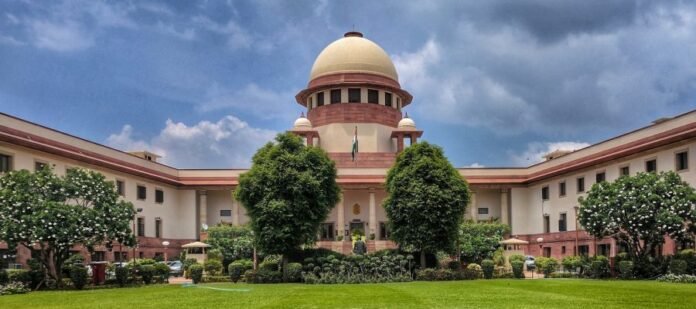The Supreme Court debates if it can prescribe timelines for Governors and the President to act on bills. A key moment in the Article 143 reference.
In a rare Presidential Reference, the Supreme Court is examining whether it can recommend timelines for constitutional functionaries to act on State bills.
Presidential Reference on Assent Delay: Supreme Court Constitution Bench Hears Final Arguments
The Supreme Court today continued hearings on a landmark Presidential Reference under Article 143, addressing a question of deep constitutional consequence: Can courts prescribe timelines for Governors and the President to act on bills passed by State legislatures when the Constitution is silent on the matter?
🔹 Origin of the Dispute: Tamil Nadu’s Legislative Bottleneck
Between 2020 and 2023, several bills passed by the Tamil Nadu Legislative Assembly faced unusual delays. Governor R. N. Ravi withheld assent on multiple bills, some pending for months without explanation. The State government, terming this as a “constitutional blockade”, moved the Supreme Court in October 2023.
The case reached a decisive moment on 8 April 2025, when a two-judge bench comprising Justices J. B. Pardiwala and R. Mahadevan ruled:
- Governors must decide on bills within one month.
- If reserved for the President, a decision must be taken within three months.
- Any delay must be formally justified. Silence is not a constitutional choice.
The bench called such inaction a form of “silent veto“, contradicting constitutional morality and legislative supremacy.
🔹 Article 143 Invoked: President Seeks Supreme Court’s Advice
Following the April verdict, President Droupadi Murmu, on 15 May 2025, invoked Article 143—a rare constitutional power—referring 14 key questions to the Supreme Court for advisory opinion. The primary concern: Can the judiciary introduce procedural timelines in areas where the Constitution does not explicitly mention them?
🔹 19 August 2025 Hearing: CJI Gavai Leads Constitution Bench
The five-judge Constitution Bench led by Chief Justice of India B. R. Gavai, with Justices Surya Kant, Vikram Nath, P. S. Narasimha, and Atul S. Chandurkar, heard detailed arguments from both the Union and State representatives.
✳️ CJI B. R. Gavai observed:
“When the Hon’ble President herself is seeking the Court’s views, what is the problem?”
He also noted:
“A view can be overruled, not the decision.”
✳️ Justice Surya Kant remarked:
“Delay in assent amounts to a silent veto.”
✳️ Justice P. S. Narasimha clarified:
“We are in advisory jurisdiction, not appellate. Opinions can even be polyvocal.”
The Court hinted that while it cannot legislate, it can provide interpretive clarity that influences constitutional behavior.
🔹 Why This Matters
This case carries nationwide implications. Several State governments have raised concerns about Governors withholding or delaying assent to bills—especially in opposition-ruled States. If the Supreme Court affirms its power to recommend reasonable timelines, it could re-shape Centre-State legislative dynamics.
🔹 What’s Next?
The Constitution Bench is expected to conclude hearings next week, with a detailed opinion likely by the end of September. The outcome could either reinforce judicial restraint or assert interpretive activism in constitutional governance.
👉 Also read more at:
• TheLegalObserver.com
• Latest National News
• Insightful Views
• Our Disclaime




